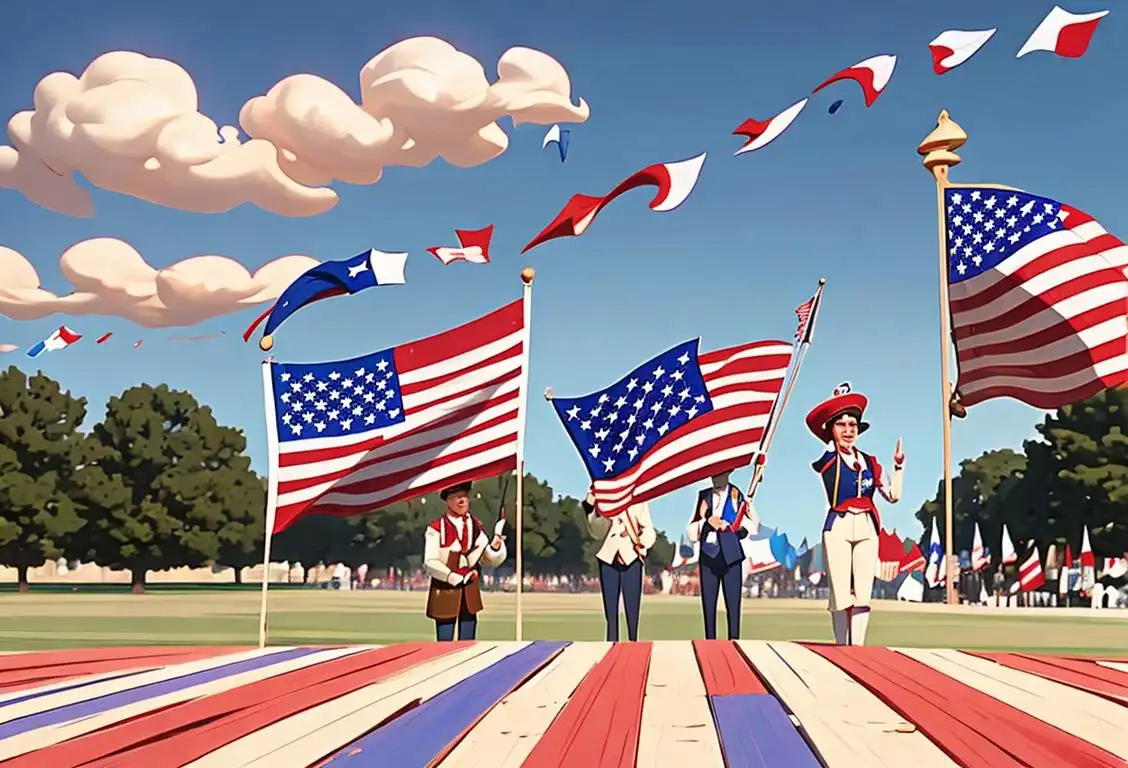National Cocaine Day

Just when you thought you've heard about every national day there is, along comes this one - a supposed 'National Cocaine Day'. Whether or not this day is legitimate, our mission today is to explore what we've found out about it on the interwebs! Beware: it's an unusual journey!.
When is Cocaine Day?
It's national cocaine day on the 21st April.
An Unusual National Day
When asked about National Cocaine Day, many would raise an eyebrow, giggle nervously and check if this is a joke. In reality, ironically, our data showed the most mentions of 'National Cocaine Day' were on 21st April 2019 – yes, the day after 420, also known as 'Weed Day'. Coincidence or intentional, only the internet knows for sure!
General Internet Noise
Our data shows 409 mentions of 'National Cocaine Day' occurring over time. If you're scratching your head and wondering, that's not a ton of buzz. Heck, 'National Spaghetti Day' probably gets more love (because who doesn't love a good pasta party?). The majority of these mentions were informal chatter, people whipping up a funny meme, or making a quip on social media. In reality, there is no official or widely recognized 'National Cocaine Day', but the internet sure does have an odd sense of humor.
The Serious Side
Though it's all fun and games until someone changes the subject to a more serious note. Drug use is a major concern worldwide and whilst the internet has a tendency to make a joke out of everything, we can't forget about the significant impact substance misuse has on individuals and communities. So, although there is no 'National Cocaine Day', there are plenty of worthwhile causes and days dedicated to raising awareness about the risks and consequences of drug use - such as 'International Day Against Drug Abuse and Illicit Trafficking'.
History behind the term 'Cocaine'
c. 3000 BC
Ancient Origins
The history of cocaine dates back to the ancient civilizations of South America. The coca plant, from which cocaine is derived, has been cultivated for thousands of years. It is believed that the indigenous people of the Andes region in present-day Peru and Bolivia were the first to discover the stimulating effects of chewing coca leaves. The leaves were considered sacred and used in religious rituals and social gatherings.
c. 16th century
Spanish Conquest and First European Awareness
During the Spanish conquest of South America, explorers encountered the use of coca among the Inca empire. The Spanish colonizers initially dismissed the plant as a pagan custom, but later recognized its potential economic value. Coca leaves were exported to Europe and became known as a tonic and stimulant, without the full understanding of its active ingredient yet.
1855
Isolation of Cocaine
In 1855, the German chemist Friedrich Gaedcke isolated the alkaloid from coca leaves and named it 'cocaine.' He obtained a pure form of the compound and confirmed its stimulating effects on the nervous system. Gaedcke's isolation of cocaine marked a major milestone in the understanding and study of the substance.
1884
Medical Applications
During the late 19th century, cocaine gained popularity as a medicinal substance. It was used as a local anesthetic, particularly in eye surgeries and dental procedures, due to its ability to numb pain. Sigmund Freud, the renowned psychoanalyst, also advocated for the therapeutic use of cocaine and even wrote a scientific paper praising its benefits.
Late 19th to Early 20th Century
Widespread Abuse
As the medical use of cocaine expanded, so did its recreational use. In the late 19th and early 20th century, cocaine became widely available in various forms, including powders, elixirs, and tonics. It gained popularity among the upper class in Europe and the United States. However, its potential for addiction and harmful effects on health began to emerge.
1914
Controlled Substance
In response to growing public concern about the dangers of cocaine, the United States enacted the Harrison Narcotics Tax Act in 1914. This legislation regulated the production, sale, and distribution of cocaine and other narcotics. Similar measures were implemented in other countries to control the use and abuse of the substance.
20th Century
Illicit Drug Trade
Despite regulations, the illicit drug trade involving cocaine flourished during the 20th century. Cocaine production shifted from South America to countries like Colombia, becoming a significant source of revenue for drug cartels. The illegal drug trade fueled violence, corruption, and addiction problems in many regions.
Present
Modern Understanding and Usage
In recent years, the understanding and perception of cocaine have evolved. Scientific research has highlighted the addictive nature and harmful health consequences of cocaine abuse. Efforts have been made to address drug addiction through education, treatment, and rehabilitation programs. Today, cocaine remains a controlled substance in most countries, with restricted medical use and severe legal consequences for illicit production and distribution.
Did you know?
Did you know that what's sometimes joked as 'National Cocaine Day' generally comes up the day after April 20th, also known as 'Weed Day'? Timing is everything!Tagged
unusual internet_history health_awarenessFirst identified
20th April 2017Most mentioned on
21st April 2019Total mentions
409Other days
Cocaine Day
Ice Cream Oyster Day
Haiku Day
Scandal Literally Every Day
Ignore Tyler Day
I Duo Day
Memorial Day
Heroes Day
Flag Day
Liberation Day








